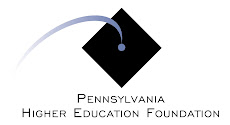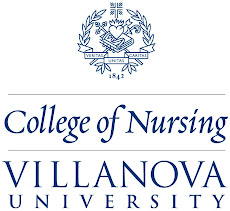It may seem old fashioned to affirm; nursing is a calling. Goetzman (2005) defines a great nurse as: (a) someone who comes to the profession with natural talents; (b) a creative mind, ready to innovate in ever changing patient situations; (c) a deep sense of compassion, enabling them to intuitively provide the emotional as well as physical care their patients need; (d) and an affinity for collaborative work, as the rigors of the job include working with a team of other nurses, physicians, and family members all holding the same goal in mind to provide the best possible care of the patient. What about the individuals who feel the calling to join the nursing discipline but whose talents are not well defined, and creativity is limited? Do individuals who lack the so called natural elements of nursing have an inability to reach the levels of nursing compassion, innovation and collaboration? It is possible to have the heart of a nurse and yet require assistance in completing a nursing actualization. The possibilities lie within nursing education. Colleges’ doors are being pounded upon by individuals who wish to answer the nursing calling. The need for nurse educators is not being met by colleges and the nursing discipline in need of members who will keep the profession’s commitment to serve as the first line life savers, care givers and health promotion innovators. Nursing today is rapidly moving into the path of a perfect storm; complex healthcare infrastructure, shortage, and an educational void (Bartels, 2005). The future quality and maybe professional existence of nursing is dependent on discipline individuals realizing their duty to learn, educate, advocate and disseminate lessons learned (L.E.A.D.).
Learning is a fundamental element of nursing’s foundation. The knowledge of nursing is vast, complex and in a state of constant evolution. Learning takes courage and the realization that educational stagnation is devastating for the profession and patient outcomes. Nursing leadership is not for a few in the profession. Every nurse is a leader. Miracle (2006) notes lifelong learning as a characteristic of leadership. It is worth noting that every nurse who is not afraid to learn does not have to utilize lessons learned to leave the bedside; learning is necessary at every level of nursing. However, learning tends to open doors that an individual never knew existed. Acting to learn may move an individual to hunger for greater challenge such as becoming involved in hospital, local and national organizations to promote excellence in the discipline. Motivation for preceptorship and mentorship without need of request may follow. Knowledge empowerment can open a nurse’s vision to become a professional innovator in ensuring the continuance of the profession. The individual may dare to take on a baccalaureate, masters or even a doctorate program. Learning can open awareness paths unknown to the stagnant nurse. Once knowledge empowerment takes place a drive to educate colleagues blinded by stagnation may become a renewed nursing mission.
Educate is an act of growth and an opportunity which every nurse needs to embrace. Educating is career building, and a life restoring action congruent with nursing’s calling. Taking the hand of a novice and providing the leadership that teaches successful strategies has rewards equaled to life restoration. Is it not life restoring to lead others to practice in a life saving profession? Effective leaders are people who can empower others and assist them in identifying their passions and talents so that they can make the most significant contribution possible (Grossman, 2007). The key is to remember that you are the leader upon which the future of nursing depends. A progression away from stagnation and embrace educating those who feel a calling to be a nurse, novices newly graduated, or experienced professionals awaken to the realization of the need to stay current is the cultivation of the nursing mission. There is no need to limit nursing’s potential. Nurses with master’s or doctoral degrees have many career choices (Nursing Education, 2006). Excuses abound in limiting the self in taking on an advanced educator role; lack of time, age, and resources. The time issue can be rectified by taking the on line route to an advanced degree. The age excuse is no excuse as second career individuals are attempting to enter nursing programs; awaiting your presence. Resources can be attained via the workplace, nursing organizations, grants, scholarships and tuition management programs. Nurses, realize that by limiting yourself, you are limiting the present and future of the profession. Nursing must develop self and professional advocacy.
Advocate is nursing’s voice in action. Silence is important in promoting patient comfort. It is not and should never be nursing’s defining characteristic. It is nurses who consistently rank as the most respected professionals in America (DeMoro, 2007). Others deem the nursing profession as an entity worthy of advocating respect, trust, and excellence in care. Knowledge stagnation is contrary to professional advocacy. Communicating nursing’s contribution to humanity should be a nurse’s life slogan. There is no greater act of advocacy than sharing lessons learned, triumphs, and life changing nursing experiences with others who have a vision to follow in your foot steps. Every time a nurse takes a step toward growth, professional advocacy takes place. However the crux of advocacy depends on nurse’s willingness to advance and educate. Who better to carry on Nightingale’s legacy than you? Evolving into a professional educator by reaching for a Masters and doctorate is within every nurse’s grasp. Advocacy via educating is an opportunity that can not be discarded. An advance degree in nursing is an excellent way to build self esteem, knowledge, and leadership in the profession; it can be one of the most rewarding choices a nurse will make (Nursing Education, 2006). One of the greatest rewards of advancing professionally is the strengthening of your nursing voice; advocacy. Once a nurse utilizes professional voice, disseminating lessons learn is sure to follow.
Disseminate is a selfless act of spreading nursing’s calling to learn, educate, and advocate. Once a nurse awakens the individual inherent leadership synonymous with the profession, communicating lessons learned follows and is typically displayed by cultivating mentorship. Mentoring is thought to be one of the highest forms of leadership and consequently, to be very significant in assisting individuals to empower themselves (Grossman, 2007). A great remedy in overcoming nursing advancement barriers is mentorship. Sharing strategies in dealing with time management, financial restraints, and self doubt can impact the present and future quality of the nursing profession. Establishing the ground work for increasing the number of educators in hospitals and colleges can have a direct impact not only in ensuring professional excellence but in diminishing shortages as doors are opened to a greater number of nursing students. Mentorship is a professional development strategy that strengthens collegial relationships, facilitates the retention of skilled nurses, and enhances overall practice (Nickle, 2007). Nursing’s present and future is in the hands of every practitioner and their willingness to answer the calling to L.E.A.D.
Leadership in nursing education is within the grasp of every nurse. Nurses forging toward educational advancement strengthen nursing’s professional foundation. Professionalism is not an award or a gift. Professionalism is the result of a collaborative knowledge development dedicated to constant cultivation and a commitment to never stop learning.
Roxana Gonzalez RN, CCRN
Saint Michael’s Medical Center
Newark, N.J.
References
Bartels, J. E. (2005). Educating nurses for the 21st century. Nursing & Health Sciences, 7(4), 221-225.
DeMoro, R. A. (2007). Nursing power goes beyond bedsides: Nurses will be the group leading the healthcare revolution in America. Journal of Patient Advocacy, 103(9), 11.
Goetzman, A. (2006). Educating the nurses of tomorrow. Creative Nursing, 11 (1), 3.
Grossman, S. (2007). Assisting critical care nurses in acquiring leadership skills. Dimensions of Critical Care Nursing, 26(2), 57-65.
Miracle, V. A. (2006). Leadership. Dimensions of Critical Care Nursing, 25(2), 93.
Nickle, P. (2007). Cognitive apprenticeship: Laying the groundwork for mentoring registered nurses in the intensive care unit. Dynamics, 18(4), 19-27.
Nursing Education: At the Crossroads of Change. (2006). Critical Care Nurse, 26, supplement, 49-73.
Thursday, September 4, 2008
Subscribe to:
Posts (Atom)










